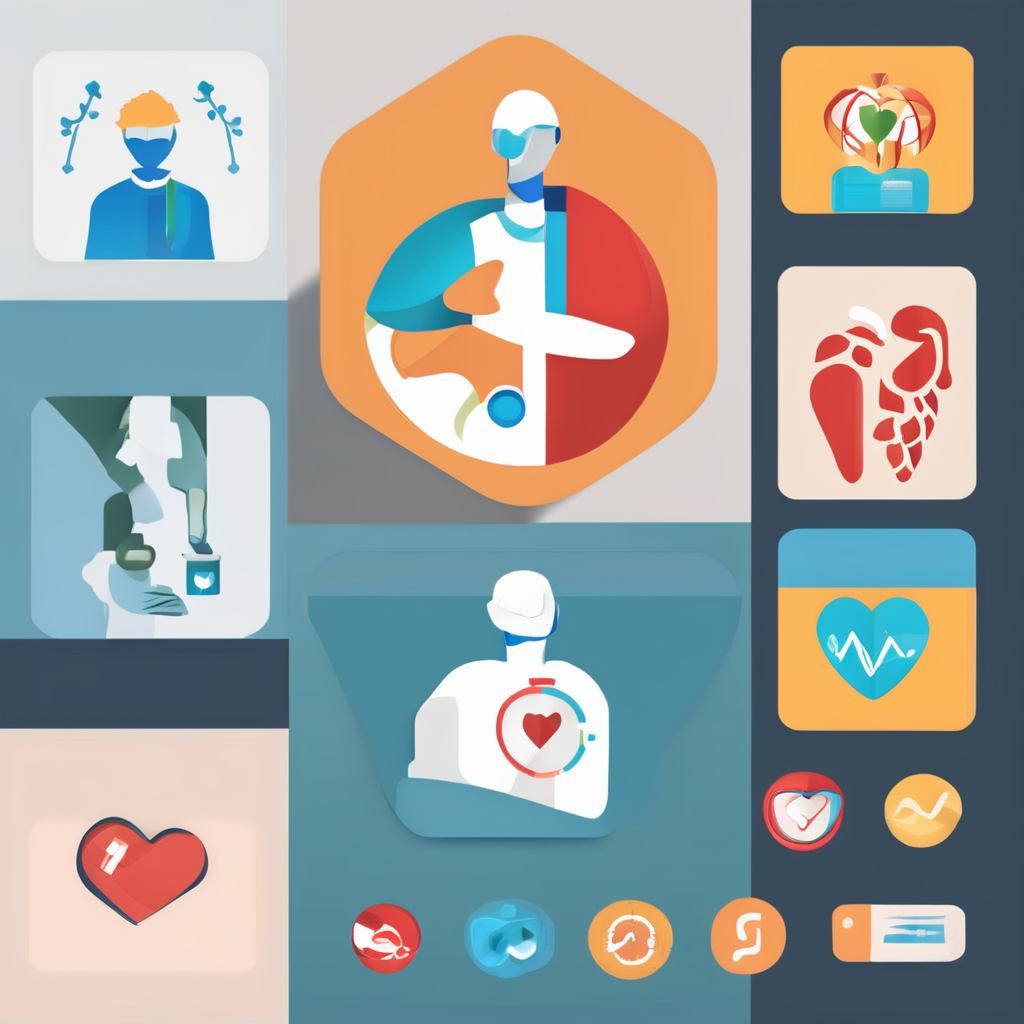Understanding Hypertension in Seniors
Hypertension, commonly known as high blood pressure, is a significant health concern for seniors. It refers to the condition where the blood pressure in the arteries is consistently elevated, which can lead to various health complications if left unmanaged. Seniors’ health is particularly at risk, as the likelihood of developing hypertension increases with age.
Several factors contribute to the prevalence of hypertension among the elderly. Aging naturally causes changes in the blood vessels, making them stiffer, which in turn raises blood pressure. Additionally, lifestyle factors such as high sodium intake, lack of physical activity, and obesity are prominent risk factors. Genetics and other health conditions, like diabetes and kidney disease, also play a crucial role in developing hypertension.
Topic to read : Unleashing Joy: The Advantages of Pet Therapy for Seniors Battling Alzheimer”s Disease
The importance of monitoring blood pressure regularly cannot be overstated. Frequent checks allow for early detection and intervention, which is critical in managing and mitigating the risks associated with hypertension. This proactive approach not only aids in effective hypertension management but also improves overall seniors’ health by preventing potential complications like heart disease, stroke, and kidney failure. Thus, awareness and understanding of blood pressure is vital for maintaining quality of life.
Effective Lifestyle Modifications
When it comes to lifestyle changes, integrating physical activity is crucial. Regular exercise not only enhances cardiovascular health but also helps in lowering blood pressure. Ideal exercises for seniors include walking, swimming, and yoga, as these activities are gentle on the joints yet effective in staying active.
Have you seen this : Unlocking Healing: How Peer Counseling Programs Aid Seniors Through Grief Recovery
Incorporating stress management techniques can further reduce hypertension risks. Simple practices like deep breathing exercises, meditation, and tai chi offer accessible ways to relax both body and mind. These activities can help manage stress levels, improving both mental and physical well-being.
Additionally, adopting good sleep hygiene is essential for managing hypertension. Consistent sleep schedules and creating a relaxing bedtime routine can enable more restful sleep. Avoiding caffeine and electronic screens before bed significantly enhances sleep quality and, in turn, helps in regulating blood pressure.
Implementing these lifestyle changes can be empowering and beneficial, particularly for seniors aiming to improve their overall health. By staying active, managing stress, and prioritising sleep, individuals can take proactive steps towards a healthier, more balanced life.
Nutritional Recommendations for Hypertension Management
Managing hypertension through dietary changes is a practical step towards better health. Nutrition guidance plays a crucial role here, with the DASH diet often recommended.
Understanding the DASH Diet
The Dietary Approaches to Stop Hypertension (DASH) diet emphasizes lowering sodium intake and consuming nutrient-rich foods. It’s designed to prevent and manage high blood pressure.
Importance of Potassium and Magnesium
Potassium and magnesium are vital for blood pressure control. Increasing the intake of potassium-rich foods enhances salt excretion, while magnesium supports vascular health. Foods high in these nutrients include bananas, spinach, and nuts.
Foods to Avoid for Better Blood Pressure Control
It is essential to minimize the consumption of certain foods and beverages that can worsen hypertension. These include:
- Processed foods high in sodium
- Sugary drinks and alcoholic beverages
- Red and processed meats
By making these dietary adjustments, individuals can effectively manage hypertension and enhance overall wellbeing. The DASH diet is particularly beneficial for seniors, as it focuses on heart health and addresses common age-related health concerns. Adhering to a nutritious regime not only manages blood pressure but also promotes long-term health.
Medication Management Strategies
Efficient medication adherence is crucial in managing hypertension effectively. When patients fail to follow their prescribed treatment plans, the risk of uncontrolled blood pressure increases, which can lead to serious complications. It’s important to stick to the regimen given by healthcare professionals to ensure medications work optimally.
One of the key strategies is fostering open communication with healthcare providers. A physician consultation provides an opportunity to discuss any challenges faced with the treatment plans. This dialogue should include any difficulties with medication adherence, such as remembering doses or understanding instructions.
Another aspect is being aware of the potential side effects and interactions of prescribed medications. Patients should inquire during a physician consultation about these possibilities and how different medications might interact. This understanding helps in making informed choices and managing any adverse reactions.
To enhance medication adherence, patients can adopt practical tips, like setting reminders or using pill organizers. These strategies may seem simple, yet they can greatly improve compliance and treatment effectiveness. This comprehensive approach ensures that patients not only take their medication as directed but do so with confidence and understanding.
Regular Monitoring Techniques
Keeping track of your blood pressure is crucial for managing your health effectively. In today’s busy world, home testing offers a convenient way to keep on top of your blood pressure without frequent visits to the doctor. Here’s how to ensure you’re implementing the best practices when monitoring at home.
Best practices for home blood pressure monitoring
To achieve accurate results, it’s essential to follow certain guidelines. Ensure your arm is at heart level, and stay still and quiet during the measurement. Regularly tracking progress can help provide your doctor with a complete picture of your cardiovascular health.
Understanding blood pressure readings
Your blood pressure reading consists of two numbers: systolic and diastolic. Knowing these numbers helps understand your heart’s work. A reliable monitor is vital, so check reviews and consider a log feature to help with tracking progress.
Keeping a log for healthcare visits
Maintaining a detailed log of your blood pressure can greatly enhance your healthcare visits. It shows patterns over time, helping healthcare providers make better-informed decisions regarding your treatment. Write down readings consistently, including date and time, to ensure you have precise and comprehensive records.
Overcoming Challenges in Hypertension Management
Successfully managing hypertension in seniors often involves overcoming barriers to care. Common challenges include cognitive decline and memory issues, which can significantly hinder medication adherence. When a senior forgets to take their medication regularly, it can lead to uncontrolled blood pressure, increasing the risk of heart disease or stroke.
Some seniors share personal anecdotes about the difficulties they face in remembering to take their medications. These stories highlight the complexity of daily routines and the critical need for effective support systems. In response, various resources are available to aid seniors. These include medication reminder apps and support groups that provide an empathetic ear and practical solutions.
Family members and caregivers play a vital role in providing senior health support. They can assist with setting up daily reminders or organizing pillboxes, ensuring medications are taken correctly. Additionally, healthcare providers often recommend routine check-ups to monitor progress and address any arising issues.
Support systems, whether technological or community-based, offer hope and reassurance. Encouragingly, by sharing personal anecdotes, seniors realize they are not alone in this journey, fostering a sense of community and empowerment.











